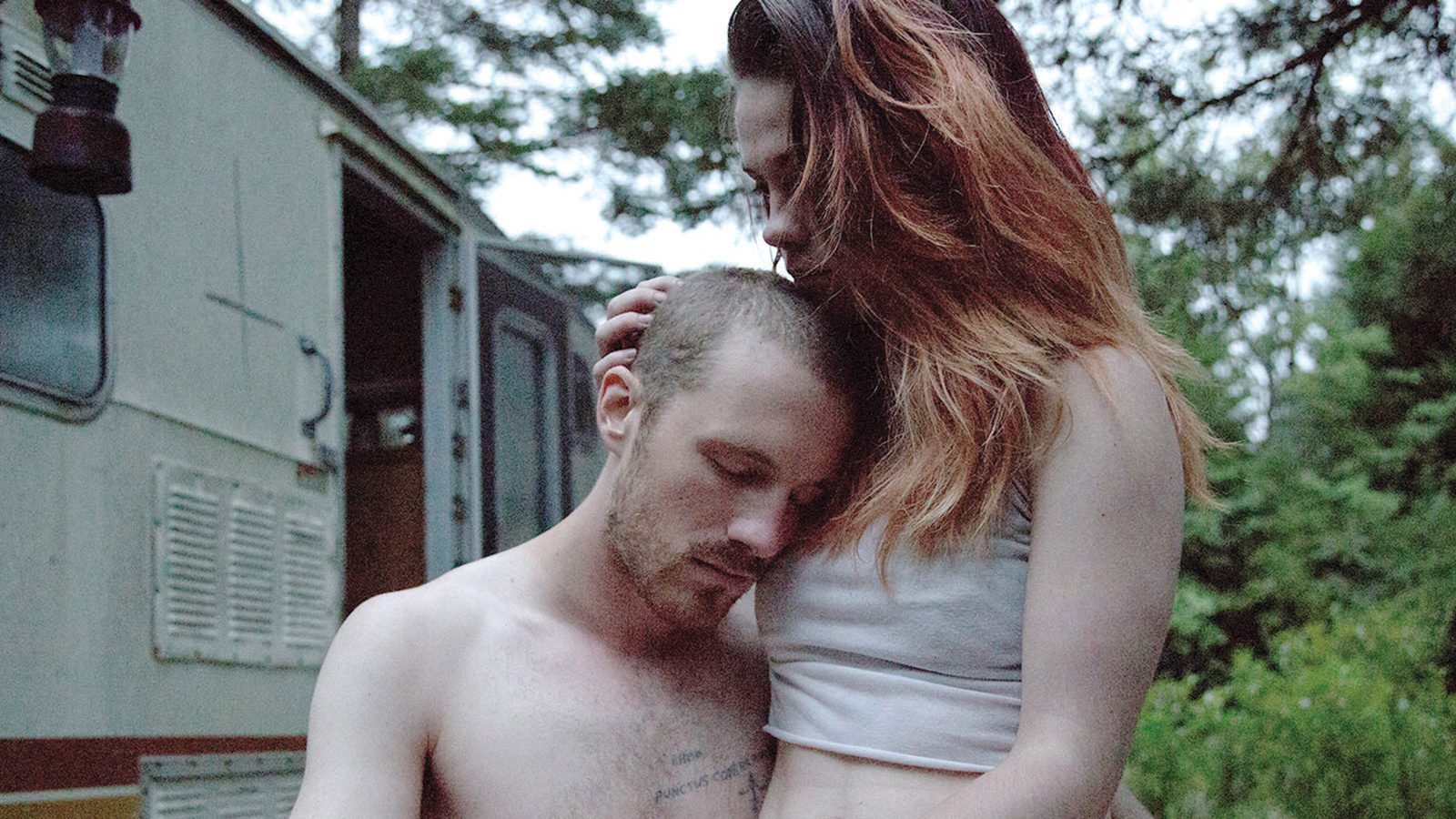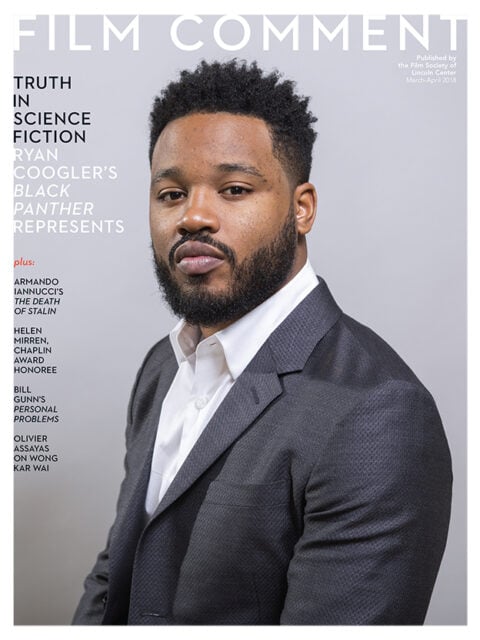
Short Takes: Werewolf
Palpable throughout Werewolf, the austere, marvelously focused debut feature from writer-director Ashley McKenzie, is a sense of existence as ordeal. Set on Cape Breton Island, Nova Scotia—McKenzie’s birthplace—the movie follows a young, translucently pasty no-hoper addict couple, Blaise and Vanessa (Andrew Gillis and Bhreagh MacNeil). They crash in a dilapidated camper when not making their rounds between the methadone clinic and doing chump-change lawn-mowing gigs for suburban homeowners, negotiations brimming with Canadian passive-aggressiveness. They pull the mower—a rusty, ancient-looking rattletrap—from door to door, and as it rolls along the thing gives off a racket that’s enough to set your teeth on edge.

Throughout the film, McKenzie is exceptionally attentive to issues of sound design, impressing how the weight of day-to-day existence presses down on and persecutes her protagonists, both bundles of raw nerve endings. Vanessa is always doing most of the work, whether in hauling the mower or keeping the relationship afloat, and with time Blaise’s relentless, wheedling whine comes to be yet another grating instrument in the daily, deadly cacophony.
Title notwithstanding, there’s no lycanthropy in the movie, just the transformations that come of getting fucked up and getting clean. Scene by scene, what McKenzie is after is capturing the process of a young woman walling herself off from sentimental appeal in order to save her own life, steeling herself for the long walk away from the wreck of her man.







